Professional Curtain Wall Facade Contractor
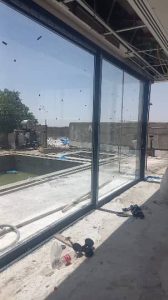
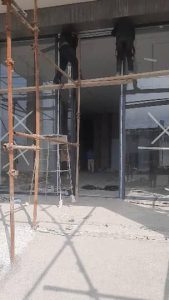
What Is a Curtain Wall Facade?
Professional Curtain Wall Facade Contractor Curtain wall facades are non-structural outer coverings of buildings made primarily of lightweight aluminum frames combined with large glass panels. These facades do not bear the structural load of the building; instead, they are attached to the building’s structural frame to protect the interior from weather and environmental factors while enhancing aesthetic appeal. This system allows for extensive use of glass to maximize natural lighting and panoramic views, which is a hallmark of modern architecture, particularly in high-rise buildings and commercial complexes.
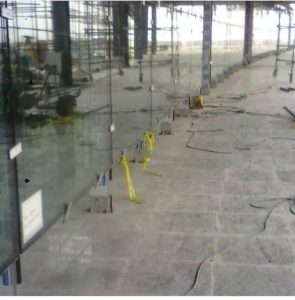
The curtain wall acts as the building’s “skin,” separating the interior environment from external conditions, helping regulate temperature, reduce noise, and improve energy efficiency. It also offers architects flexibility to implement innovative designs and façades with sleek, clean lines.
The Importance of Hiring an Expert Contractor
Installing a curtain wall facade is a complex process that requires precision, expertise, and specialized knowledge. Without a skilled contractor, issues such as water leakage, air infiltration, poor thermal performance, and even safety hazards can arise. This is particularly important in Tehran, where climatic variations and seismic activity demand that curtain wall systems be designed and installed to strict standards.
An experienced contractor not only ensures proper installation but also collaborates with architects and engineers to address challenges early in the design phase. This teamwork guarantees that the curtain wall facade functions as intended for decades, providing durability and reducing long-term maintenance costs.
Key Qualities of a Reliable Curtain Wall Contractor
- Extensive Experience: Proven successful completion of a variety of curtain wall projects, from commercial towers to residential complexes.
- Technical Expertise: Mastery of diverse curtain wall systems including stick-built, unitized, semi-unitized, and structural glazing techniques.
- Material Quality Assurance: Access to high-grade aluminum profiles, insulated and laminated glass panels, advanced sealants, and thermal breaks to meet energy codes.
- Advanced Engineering: Ability to prepare detailed shop drawings, structural calculations, and use BIM (Building Information Modeling) for design coordination.
- Skilled Workforce: Employing trained installers knowledgeable in safety protocols and precise installation techniques.
- After-Sales Service: Offering warranties, maintenance support, and timely troubleshooting post-installation.
Types of Curtain Wall Systems Offered
A professional contractor provides several curtain wall systems to accommodate various architectural and budgetary requirements:
- Stick System: Assembled piece-by-piece on site, allowing flexibility and easy transportation for smaller projects.
- Unitized System: Factory-assembled panels that enable rapid installation, favored for large-scale and high-rise projects.
- Semi-Unitized System: A hybrid approach combining unitized panels with site assembly for customized solutions.
- Spider Glass System: Utilizing minimal framing with structural fittings to maximize transparency, often used in atriums and landmark buildings.
Challenges in Curtain Wall Installation in Tehran
Tehran’s environmental and seismic conditions present unique challenges for curtain wall installation. The city experiences significant temperature fluctuations, high UV exposure, and occasional earthquakes. Contractors must account for thermal expansion, contraction, lateral seismic loads, and airtight sealing to prevent energy loss and water ingress.
Furthermore, urban pollution necessitates selecting materials and coatings that resist corrosion and staining, ensuring the facade remains visually appealing over time.
Material Sourcing and Manufacturing Capabilities
Top contractors in Tehran often have close relationships with local aluminum extrusion and glass manufacturing facilities, ensuring access to quality materials at competitive prices. Some even maintain in-house fabrication workshops to oversee quality control of cut profiles and glass assembly.
This local manufacturing capability reduces lead times, lowers transportation costs, and allows contractors to customize profiles according to project-specific requirements.
Installation Process
The installation process begins with a detailed site survey and collaboration with structural engineers and architects. Contractors prepare shop drawings and mock-ups for client approval. Upon material delivery, precise erection of framing and installation of glass panels follows, ensuring alignment, water-tightness, and structural integrity.
Rigorous testing including water infiltration tests, air leakage checks, and structural load assessments confirm the system’s performance before project handover.
Energy Efficiency and Sustainability
Modern curtain walls are designed with sustainability in mind. Incorporation of double or triple-glazed insulating glass units, low-emissivity coatings, and thermal breaks reduce heat transfer, improving energy efficiency and occupant comfort. Use of shading devices such as louvers can further control solar gain.
Contractors familiar with green building certifications like LEED ensure that curtain wall systems contribute positively to environmental goals, lowering carbon footprint and operational costs.
Seismic Design Considerations
Tehran’s seismicity requires curtain wall systems that accommodate building movement without damage. Flexible anchoring systems, impact-resistant glass, and allowance for expansion and contraction are essential. Skilled contractors use advanced structural analysis and simulation tools to design resilient systems.
Choosing the Right Contractor in Tehran
Selecting the right contractor involves reviewing portfolios, checking client references, and confirming certifications such as ISO 9001 and compliance with local regulations. Local contractors bring advantages in logistics, understanding municipal requirements, and rapid response capabilities.
Benefits of a Properly Executed Curtain Wall
- Modern aesthetic appeal with expansive glass surfaces
- Enhanced daylighting and occupant well-being
- Reduced energy consumption and operational expenses
- Increased property market value and architectural prestige
- Durable facade requiring minimal maintenance over decades
Conclusion
Curtain wall facades represent a sophisticated architectural element that blends functionality with modern design. Ensuring the success of such a system in Tehran depends on partnering with a knowledgeable, experienced, and reliable contractor. From initial design coordination to final installation and maintenance, a professional contractor guarantees quality, durability, and compliance with all technical and environmental requirements.
For developers, architects, and building owners seeking to elevate their projects, selecting the right curtain wall contractor in Tehran is a critical investment that pays dividends in building performance and long-term value.

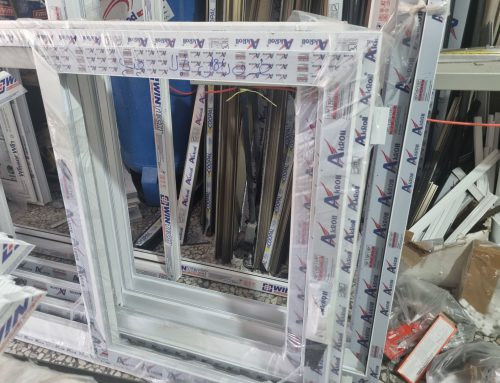
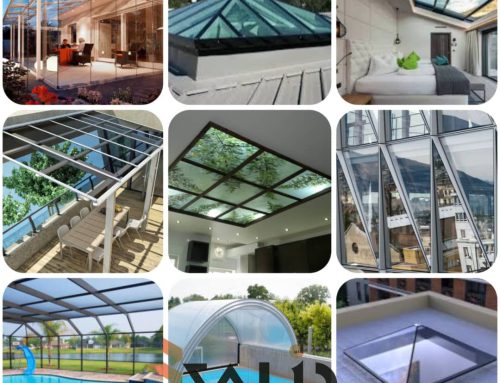
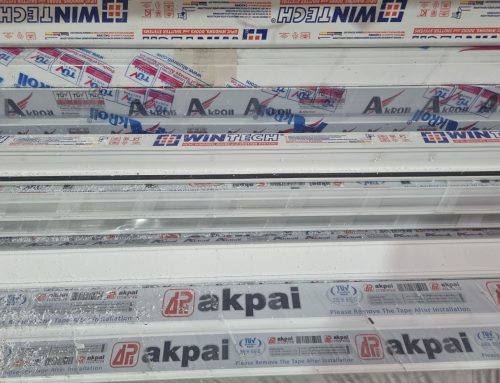
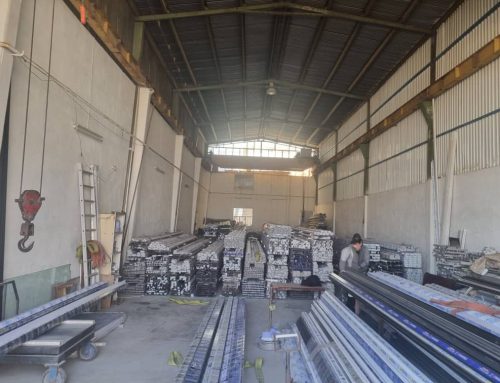
Leave A Comment